Katana Cloud Inventory is a modern inventory and manufacturing management platform designed for small to mid-sized product-based businesses.
Built with a sleek interface and real-time inventory visibility, Katana has gained popularity among DTC brands and small manufacturers that need both inventory control and production planning.
Where Katana Falls Short
While Katana is powerful for managing both inventory and production, it’s not for everyone:
- Limited multichannel support (no native Amazon, eBay, Etsy, or Walmart integrations)
- Expensive pricing tiers for access to core features like barcode scanning or batch tracking
- Not ideal for resellers, dropshippers, or brands that don’t manufacture
- Complexity for non-manufacturers, especially retailers
If Katana doesn’t quite fit your business needs, here are 10 better alternatives based on your sales channels, operational complexity, and scale:
1. Sumtracker
One of the best Katana alternatives is Sumtracker, a Shopify-recommended inventory management platform built for multichannel sellers. Unlike Katana, it’s tailored for retailers, wholesalers, and eCommerce merchants rather than manufacturers.
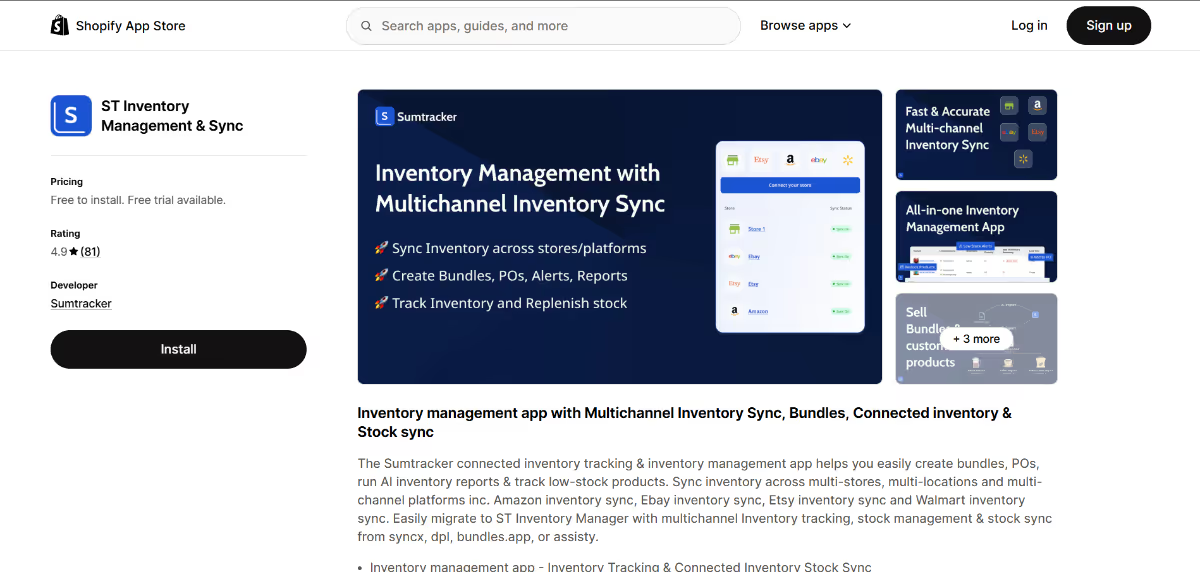
Key Features:
- Real-time inventory sync across Shopify, Amazon, Etsy, eBay, and more
- Multi-location inventory, bundles/kits, POs, and warehouse transfers
- Simple UI with role-based permissions
- Barcode-ready and shipping integration support
Pros:
- Excellent for multi-channel syncing
- Easy to use, quick onboarding
- Direct integration with marketplaces Katana lacks
Cons:
- Not suitable for in-house manufacturing with BOMs
- No built-in shop floor control
Pricing:
Starts at $49/month, with all core features included.
Why a Better Katana Alternative:
Sumtracker is ideal for eCommerce brands that don’t manufacture and need marketplace integrations something Katana lacks.
2. Unleashed Software
Unleashed is a robust inventory and manufacturing solution suited for scaling manufacturers and distributors. It offers more depth than Katana when it comes to demand forecasting and reporting.
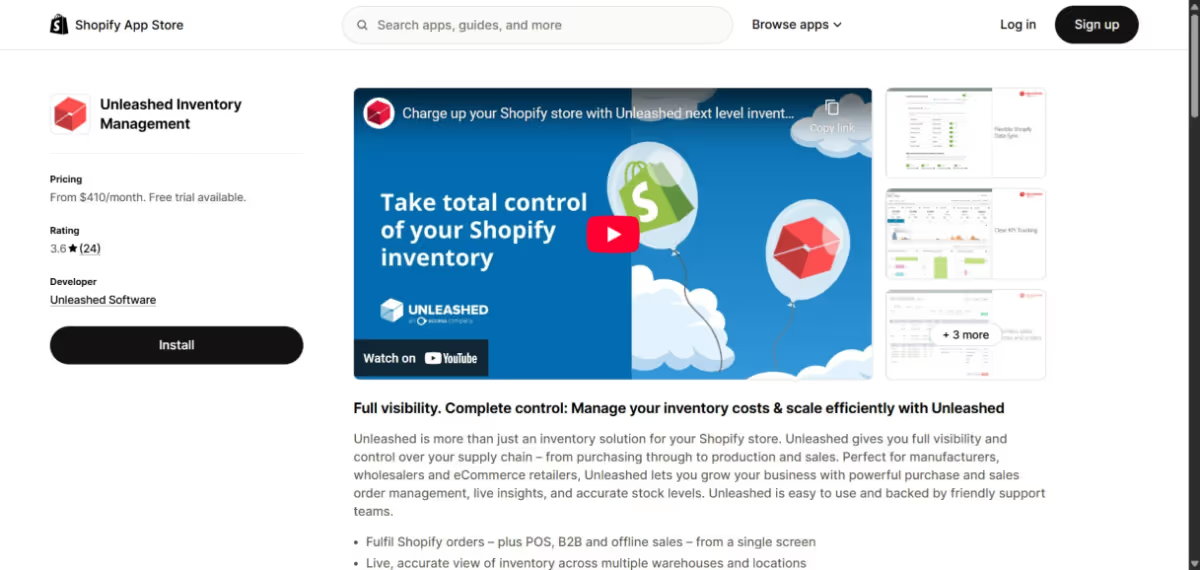
Key Features:
- Advanced BOMs, serial/batch tracking, multi-currency
- Integration with Xero, QuickBooks, Shopify, Amazon
- Demand forecasting, barcode scanning
Pros:
- Strong analytics and reporting
- Built-in forecasting and reordering
- Excellent for food & beverage, automotive, and wholesalers
Cons:
- Steeper learning curve
- Less intuitive UI compared to Katana
Pricing:
Starts at $410/month for base plan.
Why a Better Katana Alternative:
It provides more forecasting depth, better batch tracking, and supports more complex manufacturing environments.
3. Zoho Inventory
Zoho Inventory is a cloud-based inventory and order management solution perfect for small businesses and online retailers looking for an affordable Katana alternative.
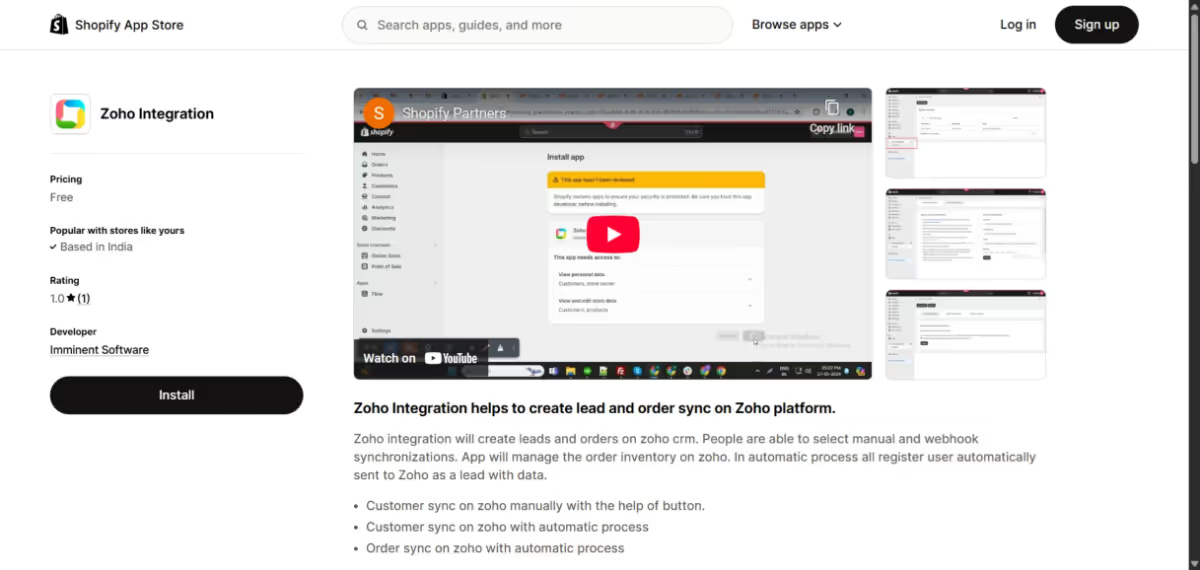
Key Features:
- Multichannel integrations (Shopify, Amazon, Etsy, eBay)
- Barcode scanning, warehouse tracking
- Dropshipping and backorder support
Pros:
- Very affordable and scalable
- Seamless integration with Zoho ecosystem
- Excellent multichannel support
Cons:
- Manufacturing features are limited
- Lacks visual production planning
Pricing:
Free plan available; paid plans start at $29/month.
Why a Better Katana Alternative:
Better suited for eCommerce sellers than Katana, and much more affordable with stronger marketplace connectivity.
4. Cin7 Core (formerly DEAR Systems)
Cin7 Core is an ERP-grade solution offering powerful inventory, manufacturing, and accounting tools in one platform. It’s ideal for growing operations that need end-to-end control.
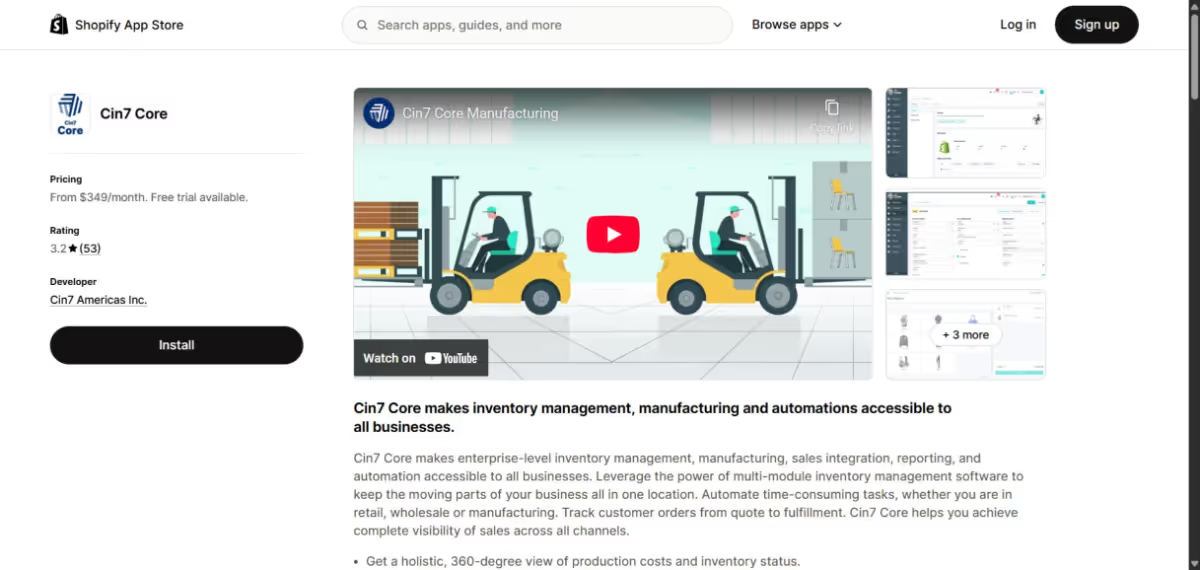
Key Features:
- MRP, batch and serial tracking, multi-warehouse support
- Manufacturing orders, BOMs, automation rules
- Integrated POS, B2B portals, and EDI
Pros:
- Very feature-rich for manufacturers and distributors
- Strong automation capabilities
- Deep accounting and finance integrations
Cons:
- Requires onboarding and training
- Can feel overwhelming for small businesses
Pricing:
Starts at $349/month.
Why a Better Katana Alternative:
More customizable, robust, and scalable for complex manufacturing and retail operations.
5. Craftybase
Craftybase is a niche inventory and bookkeeping tool tailored for handmade sellers and micro-manufacturers, especially on Etsy or Shopify.
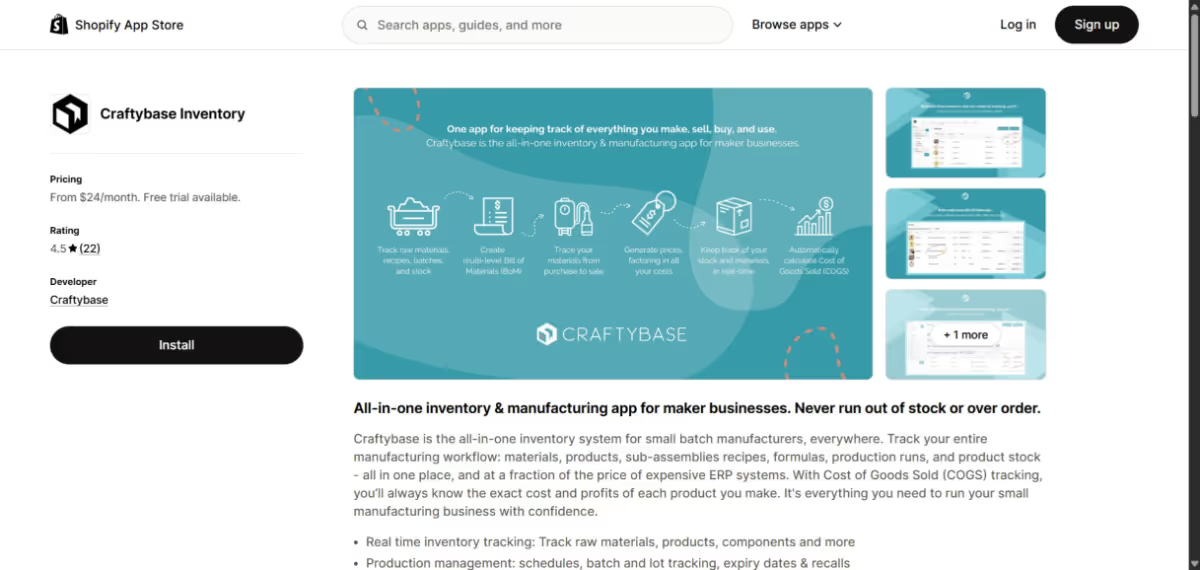
Key Features:
- Automatic COGS tracking, batch recipe management
- Ingredient-level inventory and production cost reporting
- Sales channel integrations
Pros:
- Built specifically for makers and crafters
- Affordable and simple to use
- Excellent profit margin visibility
Cons:
- Not suitable for scaling manufacturers
- No barcode or warehouse management
Pricing:
Starts at $24/month.
Why a Better Katana Alternative:
Perfect for handmade brands where Katana’s complexity and pricing are overkill.
6. Fabrikator
Fabrikator is a lightweight yet powerful forecasting and replenishment app built specifically for Shopify brands.
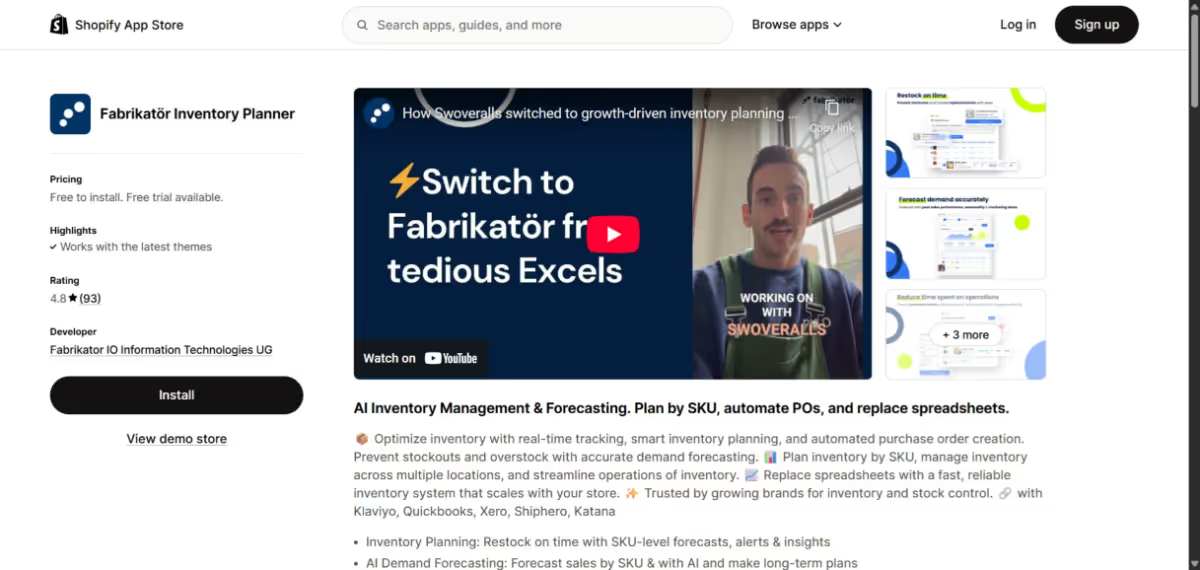
Key Features:
- Demand forecasting and purchase order automation
- Inventory health tracking and stockout prevention alerts
- Reorder point recommendations
Pros:
- Shopify-native, plug-and-play
- Focused forecasting with intuitive UI
- Helps avoid understocking and overstocking
Cons:
- Not an all-in-one inventory solution
- No support for production or manufacturing
Pricing:
Starts at $79/month.
Why a Better Katana Alternative:
Better for forecasting and replenishment workflows; simpler to use for Shopify-only merchants.
7. Inventory Planner by Sage
Inventory Planner is a highly rated planning tool that helps merchants optimize purchasing decisions through intelligent forecasting.
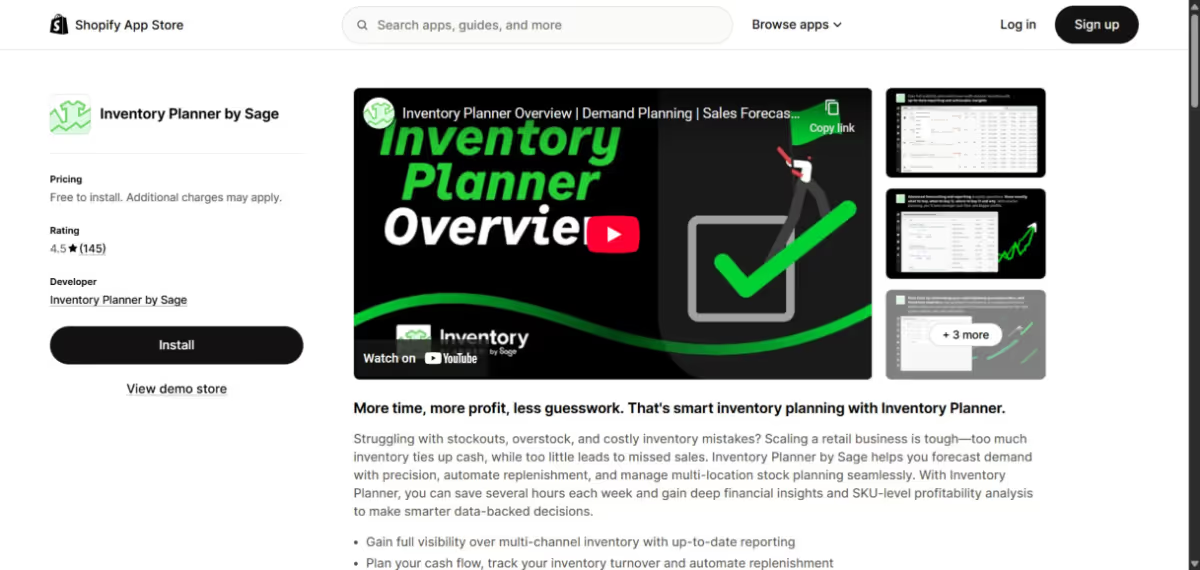
Key Features:
- Sales forecasting by SKU/location
- Overstock and low stock alerts
- Automated replenishment suggestions
Pros:
- Excellent analytics and recommendations
- Works across multiple channels
- Reduces stockouts and excess inventory
Cons:
- No manufacturing features
- Requires integration with inventory software
Pricing:
Custom-based pricing
Why a Better Katana Alternative:
Much stronger forecasting tools; complements simpler inventory systems better than Katana's built-in logic.
8. Cogsy
Cogsy is a Shopify-first operations platform designed to give fast-growing DTC brands full visibility into inventory and restocking needs.
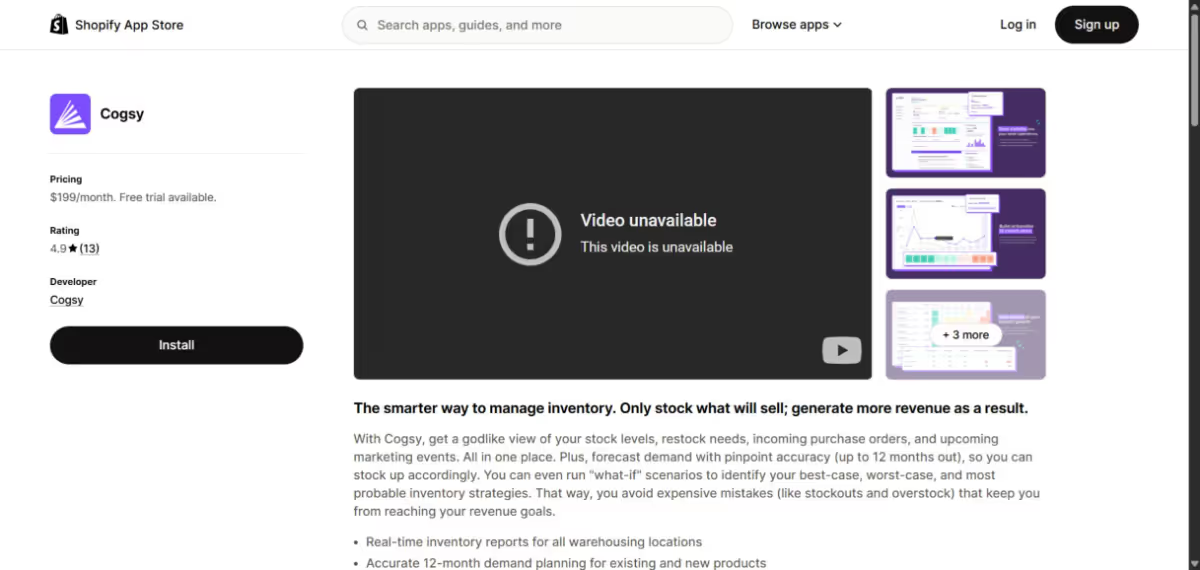
Key Features:
- Live inventory status, dynamic POs, reorder planning
- Integrates with Shopify and fulfillment tools
- Metrics and alerts to guide stock decisions
Pros:
- Clean, modern UI
- Automates reordering
- Designed for high-SKU velocity brands
Cons:
- No support for in-house manufacturing
- Limited to DTC Shopify brands
Pricing:
Custom-based pricing
Why a Better Katana Alternative:
Ideal for Shopify brands that need inventory intelligence but not full manufacturing support.
9. Finale Inventor
Finale is a warehouse and inventory management tool suited for high-SKU, multi-channel sellers who need tight control over logistics.
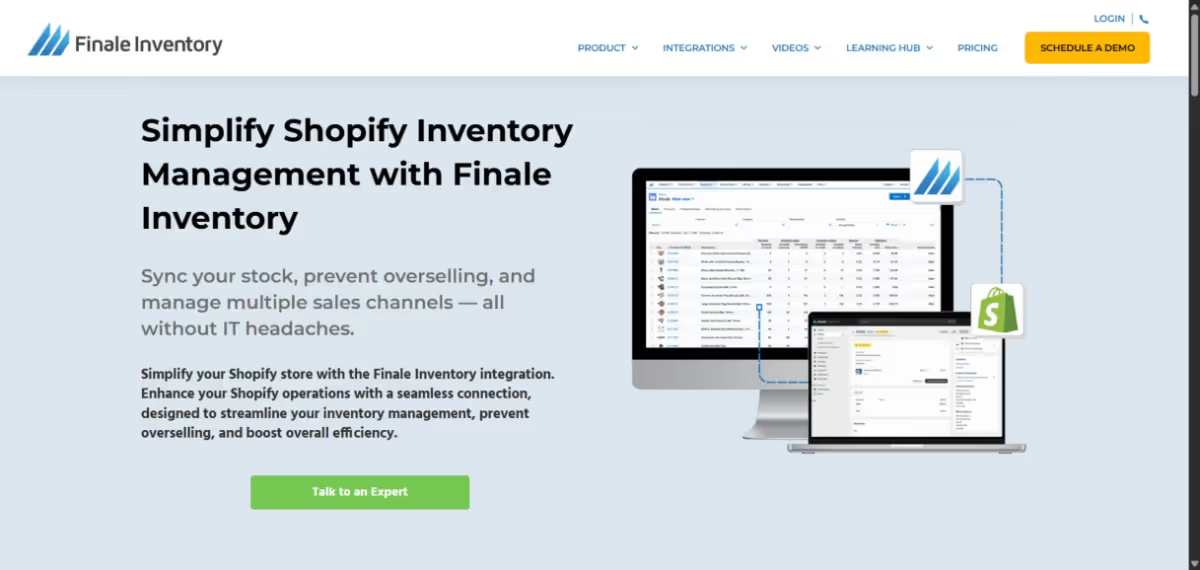
Key Features:
- Barcode scanning, FIFO/LIFO support, kitting
- Integrations with Shopify, Amazon, eBay, ShipStation
- Real-time warehouse inventory control
Pros:
- Great for high-volume sellers
- Powerful barcode and warehouse features
- Customizable workflows
Cons:
- UI isn’t very modern
- Not manufacturing-focused
Pricing:
Starts at $99/month.
Why a Better Katana Alternative:
More suited for retailers with deep warehouse needs than small manufacturers.
10. Fishbowl Inventory
Fishbowl is a mature, hybrid solution that brings ERP-grade inventory and manufacturing tools to businesses using QuickBooks or Xero.

Key Features:
- Work orders, MRP, part tracking
- Barcode scanning, reorder automation
- Multi-warehouse and location control
Pros:
- Strong QuickBooks integration
- Handles complex manufacturing and inventory workflows
- Modular approach
Cons:
- Dated interface
- Requires desktop software and hosting
Pricing:
Custom pricing available
Why a Better Katana Alternative:
More suited for manufacturers that need accounting integration and greater production depth.
Conclusion
Katana Cloud Inventory is a solid choice for small manufacturers who need visual production planning and real-time stock tracking but it’s not a one-size-fits-all solution.
If you’re a multichannel seller, a non-manufacturer, or simply need more advanced forecasting or integrations, there are better tools out there.
From Shopify-native apps to powerful ERP-grade tools, the alternatives listed above offer greater flexibility, affordability, or specialization based on your business model.
Choosing the right inventory software depends on your unique operations. Evaluate what your business needs most, and you’ll find a Katana alternative that not only fits but scales with you.
Try Sumtracker for free and see how effortless inventory management can be.
Conclusion
Ready to Simplify Your Inventory Management?
Join hundreds of e-commerce merchants who rely on Sumtracker to save time, eliminate errors, and grow their business.
.svg)



.png)
.avif)